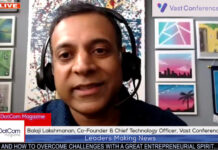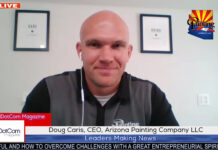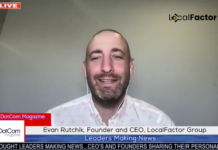Simulated Reality, a concept that delves into the philosophical and scientific realms, has sparked profound discussions about the nature of our existence and the fabric of reality itself. At its core, Simulated Reality posits that our perceived reality, the world we inhabit, may, in fact, be a computer-generated simulation, akin to a highly advanced virtual reality experience. This provocative idea challenges traditional notions of existence, consciousness, and the fundamental nature of the universe. As we explore the intricacies of Simulated Reality, we embark on a journey that traverses the boundaries of philosophy, physics, and the profound implications of living within a simulated construct.
The essence of Simulated Reality lies in the proposition that our entire existence, from the macroscopic scale of galaxies to the microscopic intricacies of subatomic particles, may be a meticulously programmed simulation. This notion draws inspiration from the exponential growth of computing power and the rapid advancement of virtual reality technologies. Proponents of Simulated Reality argue that if a civilization were to develop technology capable of creating highly realistic simulations, it would eventually create simulations indistinguishable from reality. Therefore, the argument goes, if such simulations are possible, the likelihood that we are currently living in one becomes a plausible hypothesis.
The concept of Simulated Reality intersects with various branches of philosophy, raising questions about the nature of consciousness, free will, and the purpose of our existence within a simulated construct. Philosophers grapple with the implications of living in a reality where the rules, laws of physics, and even the concept of time are not inherent but rather programmed. If our perceptions and experiences are the result of a simulated environment, what does it mean for our understanding of self-awareness and the authenticity of our consciousness? Simulated Reality prompts us to reevaluate the very foundations of our philosophical understanding, challenging age-old inquiries into the nature of reality and the human experience.
Simulated Reality’s resonance with contemporary physics, particularly quantum mechanics, adds a layer of complexity to the exploration of this concept. The inherent uncertainty and probabilistic nature of quantum phenomena provide a curious parallel to the potential randomness programmed into a simulated reality. Some theorists suggest that the peculiarities of quantum mechanics, such as superposition and entanglement, could be indicative of a simulated environment where the rules governing the behavior of particles are not fundamental but rather part of the underlying code. The interplay between Simulated Reality and quantum mechanics prompts physicists to reconsider the nature of reality itself and the role of observation and measurement in shaping our perceived world.
Within the framework of Simulated Reality, the very fabric of our reality becomes analogous to lines of code in a vast and intricate computer program. This raises intriguing questions about the nature of the simulation itself — who or what might be the architects of this simulated construct, and what motivations could underlie the creation of such a complex and detailed virtual universe? The concept invites speculation about the existence of a higher intelligence or advanced civilization capable of orchestrating such an elaborate simulation. The notion of simulated entities within the simulation, unaware of their artificial nature, adds layers of complexity to the philosophical and ethical considerations surrounding Simulated Reality.
Simulated Reality has not only captivated the realms of philosophy and physics but has also permeated popular culture and science fiction. From the iconic “Matrix” trilogy to thought-provoking novels, movies, and video games, the concept has found fertile ground for exploration in creative expressions. These fictional portrayals often serve as allegories for the profound questions and existential uncertainties raised by Simulated Reality. The prevalence of such narratives underscores the cultural fascination with the idea that our reality may be a construct, a mere projection of a more intricate and sophisticated realm.
The exploration of Simulated Reality extends beyond theoretical speculation, with some scientists and technologists actively engaging in experiments and thought experiments that could potentially provide insights into the nature of our reality. The quest for evidence or indicators of a simulated universe involves probing the fabric of space-time, exploring the limits of computational capabilities, and scrutinizing the fundamental constants of the universe for potential artifacts of programming. While these endeavors are in their infancy, they represent a convergence of theoretical inquiry and empirical investigation, as the scientific community grapples with the profound implications of Simulated Reality.
As we navigate the intricate landscape of Simulated Reality, ethical considerations come to the forefront. If, indeed, we are living within a simulated construct, what implications does this have for concepts of morality, responsibility, and the nature of our relationships? The ethical dimensions of Simulated Reality prompt us to reconsider the significance of our actions, interactions, and the consequences of our choices within a framework where the very fabric of reality may be malleable and subject to external influence. Exploring the ethical landscape of Simulated Reality requires a delicate balance between theoretical speculation and the potential impact on our understanding of morality and human behavior.
Simulated Reality’s influence on the trajectory of technological advancements is palpable, as the concept fuels discussions about the ethical development and deployment of powerful technologies that could simulate realities. The responsibility of technologists to ensure the ethical use of simulation technologies becomes a critical consideration. As we inch closer to the creation of increasingly realistic virtual environments, the ethical considerations surrounding Simulated Reality extend beyond philosophical pondering to practical questions of user consent, psychological well-being, and the potential societal impact of widespread adoption of simulated experiences.
In conclusion, the concept of Simulated Reality invites us to embark on a profound intellectual journey that transcends disciplinary boundaries. It challenges our understanding of existence, consciousness, and the very nature of reality. Whether contemplated through the lens of philosophy, examined in the intricate dance of quantum particles, or portrayed in the narratives of popular culture, Simulated Reality stimulates the imagination and prompts us to reconsider the fundamental aspects of our existence. As we navigate this conceptual landscape, we are faced with the tantalizing prospect that our reality may be more complex, more programmed, and more enigmatic than we ever dared to imagine.

















